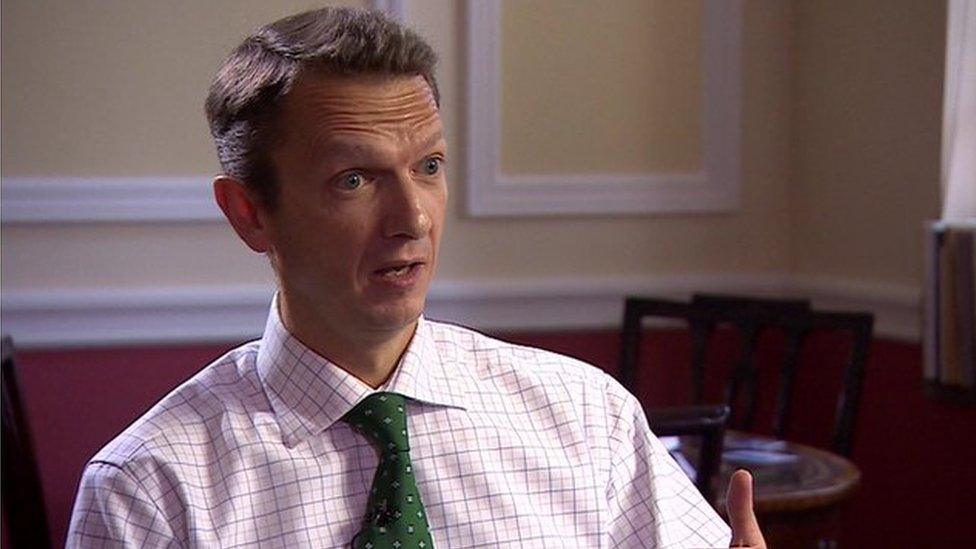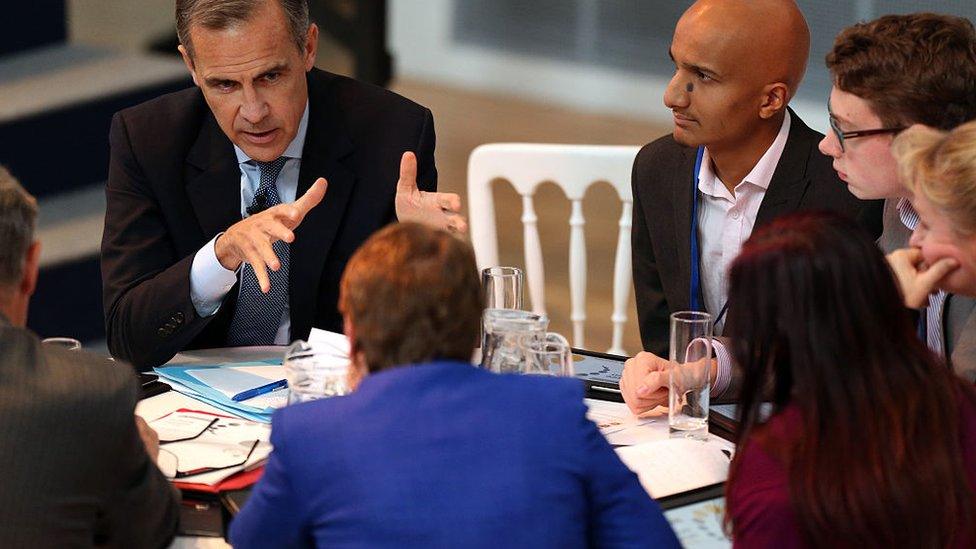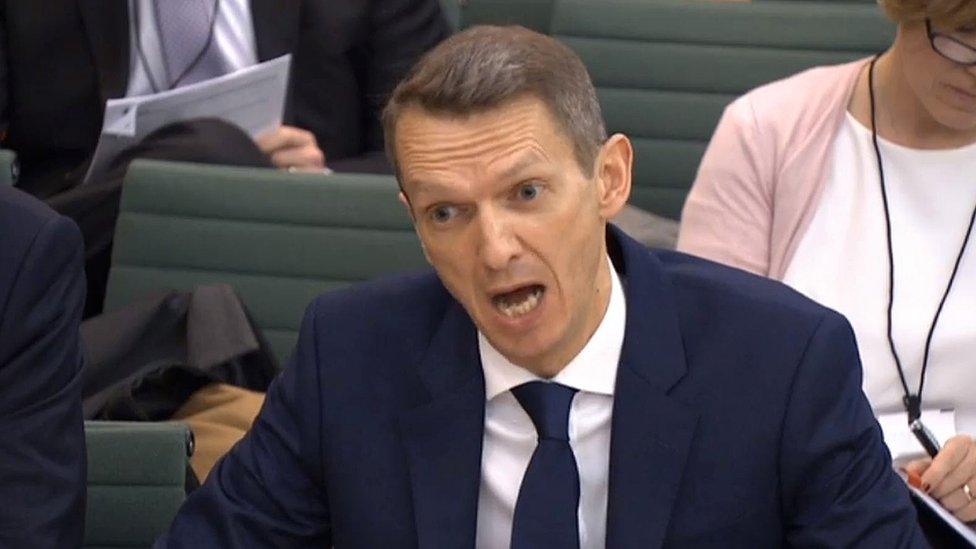Central banks 'must communicate better to regain trust'
- Published

Mr Haldane said banks should communicate using "simpler language" that engaged a wider audience
Central banks must improve the way they communicate if they are to regain society's trust, the Bank of England's chief economist says.
Andy Haldane said central banks wielded considerable power and their responsibilities "may never have been greater".
But mounting criticism and calls to reverse their independence also posed risks to their legitimacy, he said.
As such, banks had to rethink "how and with whom" they engaged.
In a speech at the Federal Reserve Bank of San Francisco, Mr Haldane said: "Trust is the lifeblood of all things monetary and financial, including central banks.
"And incredulity is Kryptonite for central banking Supermen (and the odd Superwoman), rendering ineffective their policies and unaccountable their actions.
"Building trust and legitimacy is among the most pressing issues facing central banks today."
'Trust-busting blow'
According to Mr Haldane, there had been a revolution in central bank communications in recent years, with much wider and deeper engagement with society.
He cited the Bank's decision to give "forward guidance" on its policy actions from 2013, and its move to publish full transcripts of Monetary Policy Committee meetings from 2015.

The Bank of England governor met members of the public at the Future Forum conference.
He also noted that last year, the Bank visited nearly 5,000 companies and charities, and hosted a conference at which it "openly" engaged with a wide cross section of the public.
But he said recent developments meant banks' engagement strategies needed to go further.
"First, the global financial crisis has dealt a trust-busting blow to many institutions, including central banks," he said.
"Second, the way trust is built has been fundamentally reconfigured. Where once trust was anonymised, institutionalised and centralised, today it is increasingly personalised, socialised and distributed."
Simpler language
He said central banks now needed to find new ways to engage with social groups "currently out of reach" - adapting to "new social norms and technological possibilities".
He suggested they should communicate using "simpler language" that engaged a wider audience and cut out complex jargon.
He also said they could make better use of new technologies, such as educational online games and polling apps, to understand the views of society - particularly the young.
"It is an irony, and not one lost on me, that this speech is a classic example of one-way central bank communications," Mr Haldane concluded.
"Worse still, it comes in at around 11,500 words."
"Perhaps central bankers, like this one, have always been better at preaching than practising. If so, that needs to change."
- Published20 March 2017

- Published21 February 2017

- Published6 January 2017
